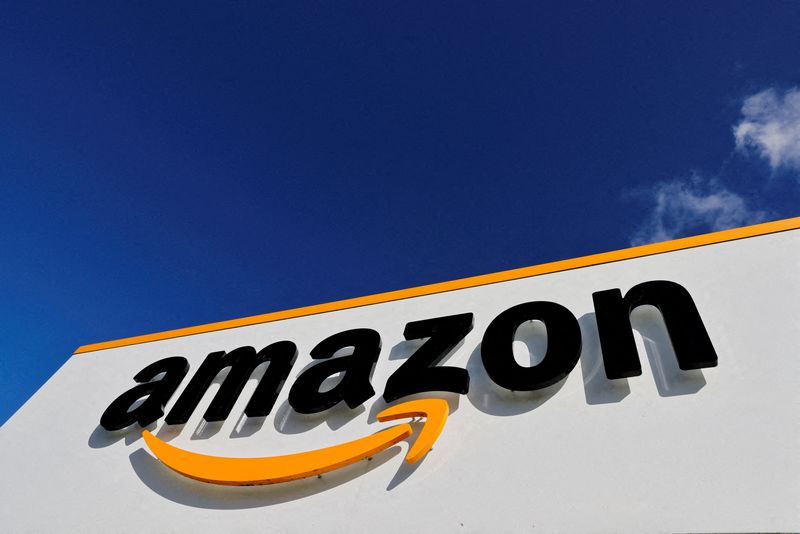Amazon shifts prototype internet satellites to ULA rocket for 2023 launch
2022.10.12 12:43
[ad_1]

© Reuters. FILE PHOTO: The Amazon logo is seen at the company’s logistics centre in Boves, France, October 6, 2021 REUTERS/Pascal Rossignol/File Photo
By Joey Roulette
WASHINGTON (Reuters) – Amazon (NASDAQ:) will launch its first two prototype satellites for a planned internet-from-space constellation in early 2023 using a new rocket from the Boeing-Lockheed joint venture United Launch Alliance, the companies said Wednesday.
Rocket development delays with launch startup ABL Space Systems, which was initially poised to launch the two Amazon satellites by late this year, prompted Amazon to hop aboard ULA’s new Vulcan rocket instead as a secondary payload.
That mission, the debut orbital flight of a new rocket that will compete with launchers from Elon Musk’s SpaceX, is set for the first quarter of 2023.
The prototype satellites will be the first to launch as part of Amazon’s Kuiper network, a planned constellation of 3,236 low-Earth orbiting satellites designed to beam broadband internet to remote parts of the world.
The company has vowed to invest $10 billion in the project, aiming to catch up with SpaceX’s fast-growing Starlink network which is already offering internet service to thousands of customers in dozens of countries.
Amazon’s last-minute switch to ULA’s Vulcan rocket will be a convenient trial run with its partner ULA, ahead of the 38 future Vulcan launches it bought from the launch company in 2021 to help deploy the bulk of its operational satellites.
Amazon has not said when it plans to launch those first operational satellites. U.S. communications regulators require the company to deploy half its constellation by 2026.
The company’s other contract for at least two launches with the startup ABL is still valid, although Amazon is unsure what satellites it will use those rockets for, a spokesman said.
ABL built a custom launch adapter and finished other custom work for the Kuiper satellites earlier this year, the company’s president Dan Piemont told Reuters in an email.
“That work is continuing for future Kuiper launches,” he added.
[ad_2]
Source link








